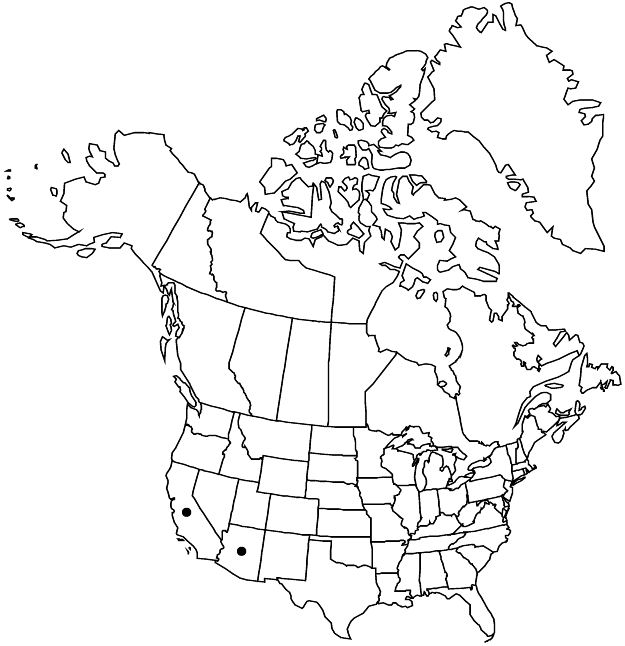Difference between revisions of "Mentzelia affinis"
Pittonia 2: 103. 1890.
FNA>Volume Importer |
imported>Volume Importer |
||
| (2 intermediate revisions by 2 users not shown) | |||
| Line 47: | Line 47: | ||
|publication year=1890 | |publication year=1890 | ||
|special status= | |special status= | ||
| − | |source xml=https:// | + | |source xml=https://bitbucket.org/aafc-mbb/fna-data-curation/src/2e0870ddd59836b60bcf96646a41e87ea5a5943a/coarse_grained_fna_xml/V12/V12_439.xml |
|genus=Mentzelia | |genus=Mentzelia | ||
|section=Mentzelia sect. Trachyphytum | |section=Mentzelia sect. Trachyphytum | ||
Latest revision as of 19:15, 5 November 2020
Plants candelabra-form, 5–40(–50) cm. Basal leaves persisting; petiole present or absent; blade linear-lanceolate to linear, margins usually deeply to moderately lobed, sinuses extending 1/4+ to midvein, rarely entire. Cauline leaves: petiole absent; blade ovate-lanceolate to lanceolate, to 17 cm, margins usually dentate or entire, rarely deeply lobed. Bracts green, ovate to lanceolate, 2.7–6.6 × 0.9–2.1 mm, width 1/5–1/3 length, not concealing capsule, margins 3-lobed or entire. Flowers: sepals 1–7 mm; petals yellow to orange proximally, yellow distally, 4–12 mm, apex acute; stamens 20+, 3–6.5 mm, filaments monomorphic, filiform, unlobed; styles 3–6.5 mm. Capsules narrowly cylindric, 7–32 × 1–3 mm, axillary curved to 90° at maturity, often prominently longitudinally ribbed. Seeds 10–20, in 1 row distal to mid fruit, tan, dark-mottled or not, triangular prisms, surface ±smooth under 10× magnification; recurved flap over hilum absent; seed coat cell outer periclinal wall flat. 2n = 18.
Phenology: Flowering Mar–May.
Habitat: Sandy, rocky, or gray-white silty soils, grasslands, creosote-bush scrub, Joshua-tree or saguaro woodlands.
Elevation: 0–1200 m.
Distribution

Ariz., Calif., Mexico (Sonora).
Discussion
Herbarium specimens of Mentzelia affinis are often difficult to distinguish from those of M. dispersa despite distinct evolutionary histories (J. M. Brokaw and L. Hufford 2010). Several characters, including flower size, leaf margins, and capsule surfaces, differ substantially between these species, but habitat is the most dependable diagnostic character. Verified populations of M. affinis have not been found above 1200 meters in desert habitats, and grassland populations are usually restricted to much lower elevations. Sympatric populations of M. affinis and M. dispersa have not been found, and, in areas of range overlap in southern California, M. dispersa has not been found below 1200 meters or in desert vegetation.
Selected References
None.